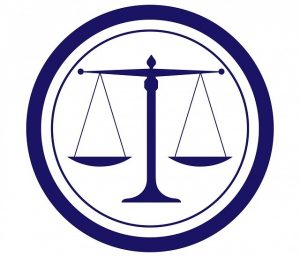In an article for US News and World Report written a few days prior to the stunning testimony of former White House aide Cassidy Hutchinson before the January 6th Committee, writer Susan Milligan examined the pros and cons of the Department of Justice charging former President Donald Trump with a crime (or several). It is well worth a read.
Even before Hutchinson’s testimony, polls show that at least 52% of Americans wanted to see Trump prosecuted. That number will most likely grow.
Yahoo! News provides an excellent overview of what Hutchinson, the young aide to Chief of Staff Mark Meadows, testified to:
“Trump knew his supporters were armed before directing them to the Capitol on Jan. 6; that he dismissed safety concerns by saying “they’re not here to hurt me”; that he wrestled the Secret Service for control of his car so he could go to the Capitol himself; that he beat the table and threw dishes, splattering ketchup on the wall, after former Attorney General William Barr publicly shot down his false allegations of a stolen election; that top national security officials repeatedly warned the White House about the potential for violence that day; that Meadows told Hutchinson ‘things might get real, real bad on January 6’; and that both Meadows and Trump’s lawyer Rudy Giuliani subsequently expressed interest in presidential pardons.”
The Yahoo article goes on to note the significance of several results of the Yahoo News/YouGov poll on various Trump activities: “When combined, these results imply that roughly 70% to 80% of Americans either already believe or remain open to believing that Trump did things after the 2020 election that could ultimately trigger prosecution.”
 While criminal prosecutions should not necessarily be undertaken just because many Americans think they should, this trend does show that a majority of us would support such a move. It may also bode well for Democrats in the midterms if voters equate Republican candidates with Trump and a certain level of lawlessness.
While criminal prosecutions should not necessarily be undertaken just because many Americans think they should, this trend does show that a majority of us would support such a move. It may also bode well for Democrats in the midterms if voters equate Republican candidates with Trump and a certain level of lawlessness.
We also know, sadly, that many Trump supporters across the country have exhibited violence, believe dangerous disinformation, are running for office at many levels based on the Big Lie, and are not beneath engaging in unethical behavior to keep or win power. This means that, if Trump were to be prosecuted and possibly even convicted and sentenced, just a small number of supporters resorting to violence could result in injury or death. A small number of violent people with lethal weapons can do a tremendous amount of damage, not only to individuals but also to law enforcement agencies and our republic in general.
We are also seeing strong evidence that some Trump supporters are engaging in coercion and witness tampering against brave individuals who are willing to put their reputations, careers and even their lives on the line for the truth and our Constitution.  Coercion and witness tampering – both felonies – are tried-and-true methods used by criminal enterprises to protect themselves, hang onto power and prevent themselves from going to prison. Fear is a powerful motivation…
Coercion and witness tampering – both felonies – are tried-and-true methods used by criminal enterprises to protect themselves, hang onto power and prevent themselves from going to prison. Fear is a powerful motivation…
A compelling Washington Post article by Matthew Dallek, professor in the Graduate School of Political Management at George Washington University, argued as early as February 2022 that we must learn important lessons from the example of President Gerald Ford’s pardon of Richard Nixon. Among the points Dallek makes are the following:
- As strong and fair as our system of justice is much of the time, we also know that it can be a very unfair and unjust system that favors the wealthy and well-placed – like Donald Trump. When he had the power of the presidency, several convicted felons received pardons from Trump or had their sentences commuted by him (e.g., Dinesh D’Souza, Roger Stone, Michael Flynn, Paul Manafort, and Charles Kushner). If Trump were to gain power again, we can be sure that the same practices would continue.
- In Dallek’s words, “…prosecuting deposed leaders is the stuff of banana republics…. Trump has boasted of his willingness to go that route: In 2016, he ran by pledging that he intended to use the power of federal law enforcement to help his friends and pay back his enemies… Trump sees the law and law enforcement as a weapon: He wielded it to protect himself and rout his foes.”
- Dallek argues that “the far graver peril in this situation is inaction, a paralyzing refusal to hold Trump criminally liable for his behavior.” Dallek provides several examples of when lawlessness, especially white supremacist violence, has triumphed in the US and how damaging it is to the country. Incidents in 1873, 1874 and 1898 resulted in “no law enforcement, no accountability and no consequences, [which] empowered anti-democratic forces for decades across the Deep South and elsewhere.”
- In addition, “the failure to prosecute Trump for any crimes he himself commits empowers him to do it louder… Trump’s supporters are watching… Like him, they see themselves as answering to an ideology, not to the laws… [Thus], not prosecuting Trump has already signaled to his supporters that accountability is for suckers.”
Given this terrifying history and current scenario, what are we citizens and voters willing to risk? What can any of us do in the face of possible civic unrest if Trump himself is charged with crimes?
Obviously most of us are not suicidal: rational people in general do not want to be killed or put our families at risk. So, each of us needs to make our own decisions. But there are ways each of us can exhibit courage in our individual situations or at least support law enforcement authorities who daily put their own lives on the line to get between innocent civilians and lawbreakers.  (For instance, a community of amateur sleuths – “sedition hunters” – has identified hundreds of suspected Capitol rioters and provided the information to the Justice Department, an amazing example of the creative use of social media.)
(For instance, a community of amateur sleuths – “sedition hunters” – has identified hundreds of suspected Capitol rioters and provided the information to the Justice Department, an amazing example of the creative use of social media.)
When large groups of people exhibit strength and courage on the side of what is right, tragedies can often be averted; there can often be “strength in numbers.” Voting for candidates at all levels of government, in primaries and in the general election in November, is our basic “group action,” and there are many others. Relatedly, however, we cannot be fooled by Republicans and others who might come around over time to agree with those who have been maintaining all along that Trump and his supporters are extremely dangerous. Many voters across the country who have always voted a GOP ticket are nearly hard-wired to shun Democratic candidates at all costs, for ideological and other reasons. If those voters are tempted to vote for change-of-heart Republicans instead of Democrats, we can well find ourselves in great trouble again: those GOP politicians might very well revert to supporting Trump (or “Trumpists”) if they find that he is the one – as in 2016 – who more closely holds longstanding Republican ideological views and who attracts not only votes but also enormous sums of money. Many GOP officials across the country are constantly putting party over country – in stark contrast to the bravery of Representative Liz Cheney, who is fighting an uphill battle to retain her seat in Wyoming.
Will our democracy be preserved?  Only time will tell; it is up to us and those public servants we entrust to carry out our wishes.
Only time will tell; it is up to us and those public servants we entrust to carry out our wishes.
